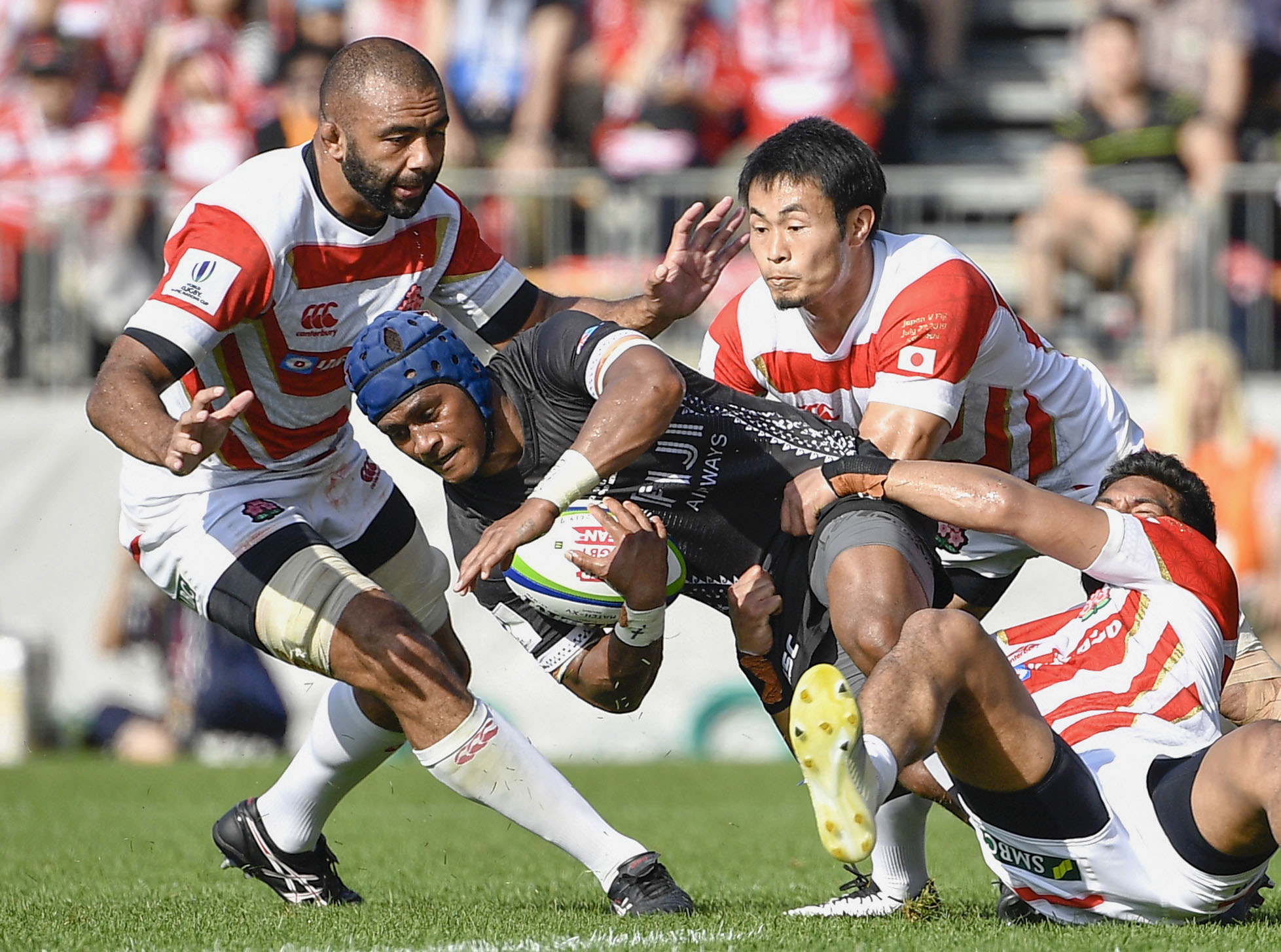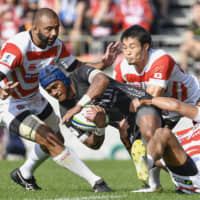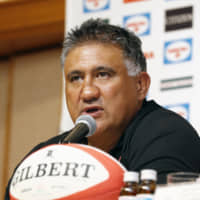Japan head coach Jamie Joseph has a clear goal for the 2019 Rugby World Cup — lead his team to the quarterfinals for the first time in history.
The fact that the Brave Blossoms did not make the last eight at the previous tournament despite winning three of their four games, however, illustrates the size of the task they face.
Joseph took charge of Japan in August 2016, almost a year after predecessor Eddie Jones had led the team to historic wins over South Africa, Samoa and the United States at the 2015 Rugby World Cup in England.
That achievement made heroes of the players and catapulted them to a level of stardom that no one involved in rugby had ever experienced before in baseball-mad Japan.
Unfortunately for Joseph, it also made his job more difficult.
"There was a lot of expectation immediately surrounding the Eddie era of 2015 World Cup success," the 49-year-old New Zealander said after naming his World Cup squad late last month. "The trouble with that was the majority of the players had retired or made themselves unavailable, and the players that were left behind weren't as hungry as I believe they needed to be in order to take their rugby to another level."
Joseph has steadily set about reshaping the team over the past three years, shedding some of the biggest stars from 2015, including Ayumu Goromaru, Akihito Yamada and Harumichi Tatekawa, and nurturing a new generation of talent.
The creation of Japan's Super Rugby franchise, the Sunwolves, from the 2016 season onward gave Joseph a nucleus of players involved in regular high-level competition to work with, even if the team's results were not as good as expected.
Players such as flyhalf Yu Tamura, winger Kotaro Matsushima and scrumhalf Yutaka Nagare have become central to Joseph's plans, with Tamura in particular making significant improvements after some rocky early outings.
"Tamura has grown as a player over the past three years, in particular the last six months," Joseph said of the 30-year-old. "He's taken his rugby to a totally different level. He's incredibly confident. A lot of the challenges he was facing in the previous years, he no longer has. He's our starting No. 10."
Joseph can still call on plenty of experienced heads, with scrumhalf Fumiaki Tanaka, lock Luke Thompson and inspirational captain Michael Leitch all still on board. Leitch has been battling through the pain of a separated pelvis in order to appear at the World Cup, but Joseph is confident that other players can take the lead if the 30-year-old flanker is not available to play.
"We've always been preparing a level of leadership so that we can adapt if Michael's not there," said Joseph. "That's what we have now. The reason we have it now is that we've been able to promote players like Nagare, the captain of the Sunwolves. Give him experience, take his leadership skills from (Top League team) Suntory to a different level, where he's got to lead in a tougher competition, in a team that's not winning every week."
Joseph has picked a multicultural squad, with 16 of the 31 players born overseas, in countries including New Zealand, South Africa, South Korea, Australia and Tonga. The coach insists that the team's diversity is a point of strength rather than weakness, and the players are proud to represent their adopted country.
"It's always special putting on the sakura jersey," flanker Pieter Labuschagne said earlier this month after playing in Japan's 41-7 warmup loss to South Africa, the country of his birth. "Playing for Japan, representing something bigger, not just for the group we're in but for our families and Japan as a whole. That's what makes it special. Any time you get the opportunity to represent the Brave Blossoms, it's a special occasion. You want to go out there and make the country proud."
The players will no doubt find it even more special if they are able to get through a first-round group that also contains world No. 1-ranked Ireland, Scotland, Samoa and Russia, with a quarterfinal against New Zealand or South Africa the probable reward.
To even believe such an achievement is possible would have been beyond the wildest dreams of Japanese rugby before the events of 2015 recalibrated expectations, and although Joseph refuses to say how far he thinks his team can get, he admits to being quietly confident.
"I can guarantee that they will not give up," he said. "Eighteen months ago, I wouldn't be confident to say this publicly, but I can tell you now that the players have been through a series of challenges and are now confident that they can put their best foot forward. Everyone is excited in the team."





